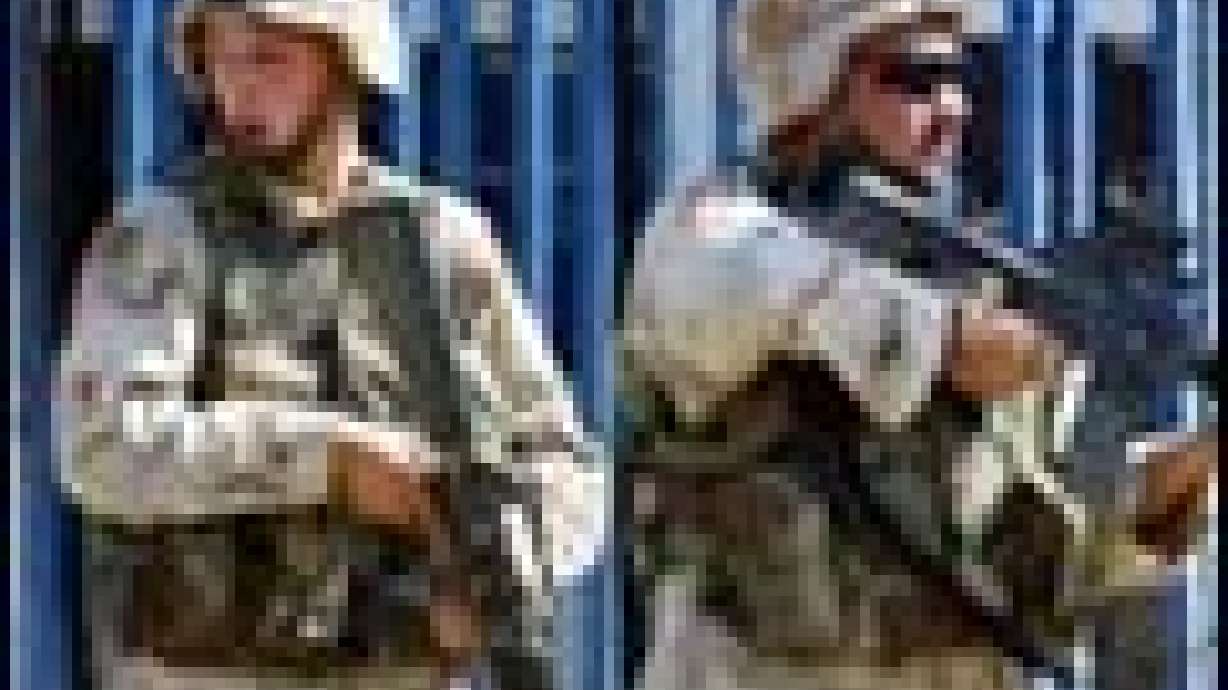Estimated read time: 4-5 minutes
This archived news story is available only for your personal, non-commercial use. Information in the story may be outdated or superseded by additional information. Reading or replaying the story in its archived form does not constitute a republication of the story.
BAGHDAD, Iraq (AP) -- Three gunmen sprayed bullets at worshippers at the end of dawn prayers Friday, wounding three people, the cleric at a Sunni mosque in northeast Baghdad said.
Walid al-Azari said the gunmen got out of a pickup truck near the Quiba mosque and opened fire with Kalashnikov rifles at about 4:30 a.m.
"They wanted to harm the unity of Islam," al-Azari said.
In Najaf, 110 miles south of Baghdad, more than 10,000 people filled the area around the Imam Ali shrine waiting to hear the Friday sermon of Abdel-Aziz al-Hakim, whose brother was assassinated in a car bombing outside the mosque a week ago. The inside of the shrine compound was packed with congregants as well.
In the end, al-Hakim did not appear, and the sermon was delivered by a deputy of his slain brother.
Armed security men stood every five yards along the top of the Shiite shrine, the holiest in Iraq.
Al-Hakim, a member of the American-picked governing council, has taken over his slain brother's leadership position in the Supreme Council for the Islamic Revolution in Iraq. He led the armed wing of the organization, the Badr Brigade, which U.S. forces ordered disarmed shortly after the war ended April 9.
The group rearmed in defiance of the U.S. demand and many members, wearing arm bands identifying themselves as Badr Brigade and carrying Kalashnikov rifles, were part of the security force.
Also Friday, Defense Secretary Donald H. Rumsfeld was in ousted leader Saddam Hussein's hometown of Tikrit, visiting troops of the 4th Infantry Division. He then went to Mosul, in the far north, to visit the 101st Airborne Division.
"I think we have the formula here for success," Rumsfeld said Friday. "A lot of things have been accomplished. It's not going to be a straight steady path. In the future there will be difficulties."
The commander of American troops in Tikrit said Friday that Saddam probably is hiding in or around there. Major Gen. Ray Odierno said 4th Infantry Division troops had captured several of Saddam's former bodyguards in the past month.
"If he makes a mistake, we'll have him," Odierno said.
Also Friday, government contractor Halliburton said a civilian employee with its subsidiary Kellogg Brown & Root was shot and killed in Iraq on Wednesday, the second person connected to the firm to die in an attack in a month.
The employee was assigned to a team supporting Army mail delivery, Halliburton spokeswoman Wendy Hall said.
The U.S. military in Baghdad confirmed that an American civilian contractor was killed Wednesday in Iraq, but gave no details.
Another American employed by KBR was killed Aug. 5 when a remote-control bomb exploded under the truck he was driving north of Tikrit.
Halliburton, the oil field-services and construction company formerly led by Vice President Dick Cheney, has major contracts for reconstruction in both Iraq and Afghanistan.
In Baghdad on Thursday, the top U.S. commander in Iraq said more international troops are needed to stave off threats ranging from al-Qaida terrorists to brewing ethnic and religious conflicts.
Lt. Gen. Ricardo Sanchez said he had enough soldiers to accomplish the mission given by Washington, but its scope did not include guarding Iraq's porous borders or its thousands of miles of highways. Sanchez said last week it was impossible for coalition forces to defend the full length of pipeline carrying Iraq's oil.
He warned that international troops were needed to reinforce existing coalition forces in tackling looming security threats, such as Iranian fighters or possible conflicts between Iraq's Sunni and Shiite Muslims.
"If a militia or an internal conflict of some nature were to erupt ... that would be an additional security challenge out there that I do not have sufficient forces for," Sanchez said.
In Washington, Gen. Richard Myers, chairman of the Joint Chiefs of Staff, said more international troops would be welcome to counter the impression among Iraqis that the occupation is strictly an American operation.
"This has an awful lot to do with the Iraqi people and how they perceive coalition forces. I think the last thing we want is for them to believe this is a mission of the United States. It's much bigger than that," Myers said.
The Bush administration is pushing a new United Nations resolution aimed at persuading more nations to contribute troops. Russia gave its first signal Thursday that it could send peacekeepers, and Britain said it was considering whether to increase its deployment.
Rumsfeld estimated that other countries could provide "maybe another division" in Iraq, or about 10,000 troops. There are now about 140,000 U.S. troops and about an additional 20,500 from 29 other countries, including Britain.
The newly named Iraqi foreign minister said no troops should be used from any of Iraq's neighbors.
"They may carry with them their own political agenda that may lead to tension and destabilization," Foreign Minister Hoshyar Zebari told The Associated Press.
(Copyright 2003 by The Associated Press. All Rights Reserved.)









